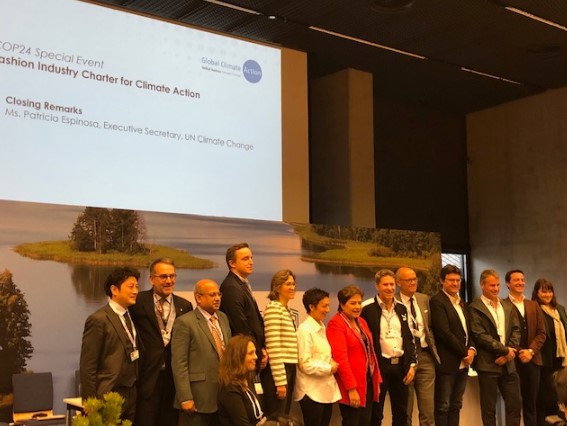Climate change is a hot topic, and we must all do our part to reduce our impact on the planet. Different industries will have their own climate-related issues to tackle, and while mitigating risks is important, adapting to change is also necessary. Businesses have a big role to play in this, as consumers now seek ethical companies with strong corporate responsibility.

Fashion brands, in particular, need to focus on their carbon footprint due to the industry’s massive environmental impact. However, recent meetings between fashion industry representatives show that concerted efforts toward sustainability can lead to significant greenhouse gas emissions reductions. There are many ways fashion brands can improve their eco credentials.
Sign the Fashion Industry Charter for Climate Action
By signing this charter, you’re committing to supporting the implementation of its principles, which contain the vision to achieve net-zero emissions for the sector by 2050. As a result, you’ll automatically become part of the climate change solution, uniting and connecting with peers to enhance your capacity to counter climate challenges.

Furthermore, you can share best practices and tools, access valuable experience, and engage with expert organizations. By doing so, you’ll be visible as an active contributor to the climate solution.
Use Fashion PLM Software
Gain a deeper understanding of your product’s impact on the planet before moving towards sustainable operations. Fashion PLM software simplifies data analysis, making it more visible and transparent through the product lifecycle for stakeholders and consumers.

It helps identify eco-friendly suppliers and track the environmental impact of projects with a materials library. PLM systems also help focus on vendor management by reviewing and making informed choices based on accurate information.
How Does PLM Work?
Product design is an intricate and complicated process, involving a vast array of different industries, sectors, departments, and people – so it’s essential that a robust system of organization is in place before work begins.
Enter PLM! This software provides all the necessary organization and insights you need into your various projects so you’re better able to modify and improve them over time, in line with how your business evolves and changes.

Because fashion brands need to start reducing their environmental impact right now in order to help the sector meet its climate change and net-zero goals, PLM software could well be the most efficient way of making a significant step-change across your operations, as well as making you more resilient in the face of climate-related challenges in the future.